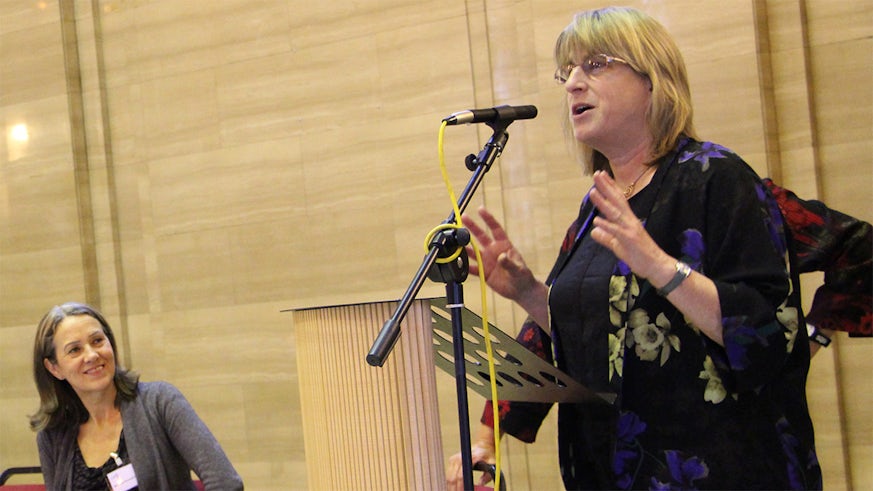Christian perspectives around death and dying
18 Tachwedd 2016

The School of Journalism, Media and Cultural Studies hosted ‘Christian perspectives around death and dying’ on Wednesday 16 November 2016.
The conference was the second to be held as part of a year-long project intended to provide opportunities for Christians from a wide range of backgrounds and different churches to explore Christian perspectives around death and dying.
The event, which attracted over ninety attendees, was held at Cardiff’s Temple of Peace.
Presentations and discussions were led by Christian leaders, academic scholars and charities and explored how people’s values, beliefs and religious faith inform their wishes about end-of-life care, theological debates and ethics around death.
The role of Advance Decisions or Living Wills was discussed by Professor Celia Kitzinger and Professor Sue Wilkinson (University of York) and Usha Grieve (Compassion in Dying).
Professor Celia Kitzinger said, “More than a decade after advance decisions were introduced, media accounts can often be inaccurate and misleading. Our aim was to provide accurate information and support for those who want some control over medical decision making at the end of their life.”

The day was organised by Cardiff University’s Julie Latchem and Professor Jenny Kitzinger, co-director of the Coma and Disorders of Consciousness research centre (CDoC) and funded by York grant-making charity Paristamen CIO, following the first event in Gloucester earlier this month.
Professor Jenny Kitzinger said, “This new initiative is part of an international movement to address the challenges raised by 21st century medicine and reflect on the ethical and social issues we all face.
“Organised religion is a major cultural force and involves huge communities with rich traditions about death and dying, and powerful rituals and representations that frame understanding of death.
“The dialogue and information sharing that is core to this initiative is fascinating and hugely important. Wednesday's conference generated deep thought and intense debate, and has already helped create new conversations and networks.”

